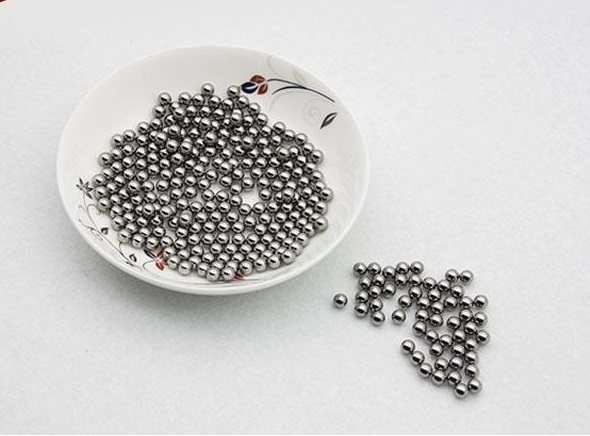| Material: | ceramic |
|---|---|
| Brand Name: | XYB |
| Pressure: | . |
| Port Size: | . |
| Temperature of Media: | . |
| Model Number: | XYB---Ceramic Ball |
| Place of Origin: | China (Mainland) |
Quick Details
Specifications
Taian Xinyuan Precision Steel Ball Manufacturing Co.,Ltd

Description:
these balls can be made from either alumina oxide, zirconia oxide or silicon nitride and have several advantages over their steel equivalents
They're 40% less dense than steel, have a 29% lower thermal expansion (so they hold their shape better when the temperature changes) and are 150% harder
Benefits:
Lightweight, hard and tough, with a low mass, these balls are particularly suited to environments which demand arduous, high speed bearing applications, for example machine tool spindles and vacuum pumps
Because they're so hard this reduces the amount of friction present and thus more of the energy is converted to work, making them more efficient in some high-speed applications ceramic balls can last 100 times longer than steel
They're also inert (chemically inactive) to most substances, so they offer excellent corrosion resistance
Use:
You'll find these used in the automotive and aviation industries (their durability and light weight makes them perfect for use in aircraft braking assemblies for example) and they're often found in many of the items that once used more traditional metal balls, like aerosol paint cans, all manner of joints and slides (like car seats and safety restraints) as well as castors, ball transfer units, quick disconnect couplings and various kinds of fasteners
Other Ceramic Material specifications:
Alumina oxide zirconia oxide silicon nitride
Composition: 99.5% Al2O3/0.5% other97% ZrO2/3% MgO87% Si3N4/13%
Hardness: 1700 Hv80-84 Ra1400-1700Hv
Ultimate tensile strength: 31,000 psi/60,000psi-
Ultimate compressive strength: >300,000psi 285,000psi>570,000psi
Modulus of elasticity: 53 x106psi29 x106psi44-45 x106psi
Maximum working temperature: 1400/2400/1000oC
Corrosion-resistance inert except for hydrofluoric and hot concentrated sulphuric acids
Inert to most substances, not recommended for environments of hydrochloric or strong alkaline solutions
Inert to most substances
Description:
these balls can be made from either alumina oxide, zirconia oxide or silicon nitride and have several advantages over their steel equivalents
They're 40% less dense than steel, have a 29% lower thermal expansion (so they hold their shape better when the temperature changes) and are 150% harder
Benefits:
Lightweight, hard and tough, with a low mass, these balls are particularly suited to environments which demand arduous, high speed bearing applications, for example machine tool spindles and vacuum pumps
Because they're so hard this reduces the amount of friction present and thus more of the energy is converted to work, making them more efficient in some high-speed applications ceramic balls can last 100 times longer than steel
They're also inert (chemically inactive) to most substances, so they offer excellent corrosion resistance
Use:
You'll find these used in the automotive and aviation industries (their durability and light weight makes them perfect for use in aircraft braking assemblies for example) and they're often found in many of the items that once used more traditional metal balls, like aerosol paint cans, all manner of joints and slides (like car seats and safety restraints) as well as castors, ball transfer units, quick disconnect couplings and various kinds of fasteners
Other Ceramic Material specifications:
Alumina oxide zirconia oxide silicon nitride
Composition: 99.5% Al2O3/0.5% other97% ZrO2/3% MgO87% Si3N4/13%
Hardness: 1700 Hv80-84 Ra1400-1700Hv
Ultimate tensile strength: 31,000 psi/60,000psi-
Ultimate compressive strength: >300,000psi 285,000psi>570,000psi
Modulus of elasticity: 53 x106psi29 x106psi44-45 x106psi
Maximum working temperature: 1400/2400/1000oC
Corrosion-resistance inert except for hydrofluoric and hot concentrated sulphuric acids
Inert to most substances, not recommended for environments of hydrochloric or strong alkaline solutions
Inert to most substances



